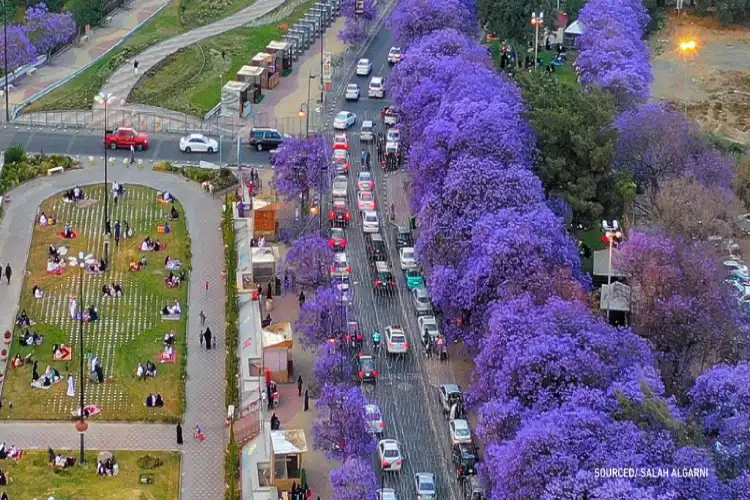
New Delhi
Saudi Arabia has opened its airspace to Israeli aircrafts early Friday, and this is seen as the first signs of a nascent normalization process between Jerusalem and Riyadh,
Saudi Arabia’s civil aviation authority’s in a tweeted statement that it was announcing “the decision to open the Kingdom’s airspace for all air carriers that meet the requirements of the authority for overflying.” The statement did not mention Israel, but Biden is expected to announce from Jeddah the successful brokering of a complicated regional deal that will see Saudi Arabia take steps toward normalization with Israel while taking possession of two islands from Egypt, the Times of Israel said.
Bangladesh is among the Islamic countries that has softened its attitude towards Israel and allowed its citizens to travel to the country though like most other Islamic countries Dhaka has no diplomatic relation with tel Aviv.
The normalization measures include Saudi Arabia opening its airspace to Israeli flights to the Far East in addition to rolling out direct flights between Israel and Saudi Arabia for Muslim pilgrims, a Middle East diplomat said late Thursday, confirming a deal has been clinched.
“This decision is the result of the President’s persistent and principled diplomacy with Saudi Arabia over many months, culminating in his visit today,” US National Security Adviser Jake Sullivan said in a statement from the White House shortly after the announcement.
He said Biden, who will land in Saudi Arabia for a controversial visit later Friday, “will have more to say on this breakthrough later today.”
Saudi Arabia only began allowing Israeli airlines to fly over its territory in a special air corridor for flights to and from the UAE and Bahrain after the Abraham Accords were signed. The change means flights to and from India, Thailand, China, and other locations in the east can cut over the Saudi peninsula, saving hours of flight time.
The US has been seeking to finalize the transfer of the Tiran and Sanafir Red Sea islands from Cairo to Riyadh in time for Biden’s visit to Jeddah, where he will participate in the GCC+3 summit and hold a bilateral meeting with Saudi officials.
---The I2U2 summit ended up with
The leaders “discussed innovative ways to ensure longer-term, more diversified food production and food delivery systems that can better manage global food shocks,” the communique said.
As for the two projects announced Thursday, the first will see the UAE invest $2 billion to develop a series of food parks across India that will incorporate green technologies to reduce food waste, conserve fresh water and employ renewable energy sources.
The collaboration will see India provide land and integrate its farmers into the project, and the US and Israel will encourage their respective private sectors to offer their expertise for the initiative, which will help address food insecurity in South Asia and the Middle East.
The second initiative will be the creation of a hybrid renewable energy project in “India’s Gujarat State of 300 megawatts (MW) of wind and solar capacity complemented by a battery energy storage system,” the joint statement said.
The US Trade and Development Agency footed the bill for a $330 million feasibility study for the project and Emirati companies are exploring investment opportunities, with the encouragement of the US and Israeli governments. The project will help advance India’s goal of achieving 500 GW of non-fossil fuel capacity by 2030 and transforming the country into a global hub for renewable energy.
The I2U2 leaders stressed that the two projects were only the beginning of a “long-term strategic partnership that… improve the movement of people and goods across hemispheres and increase sustainability…[through] collaborative science and technology partnerships.”
